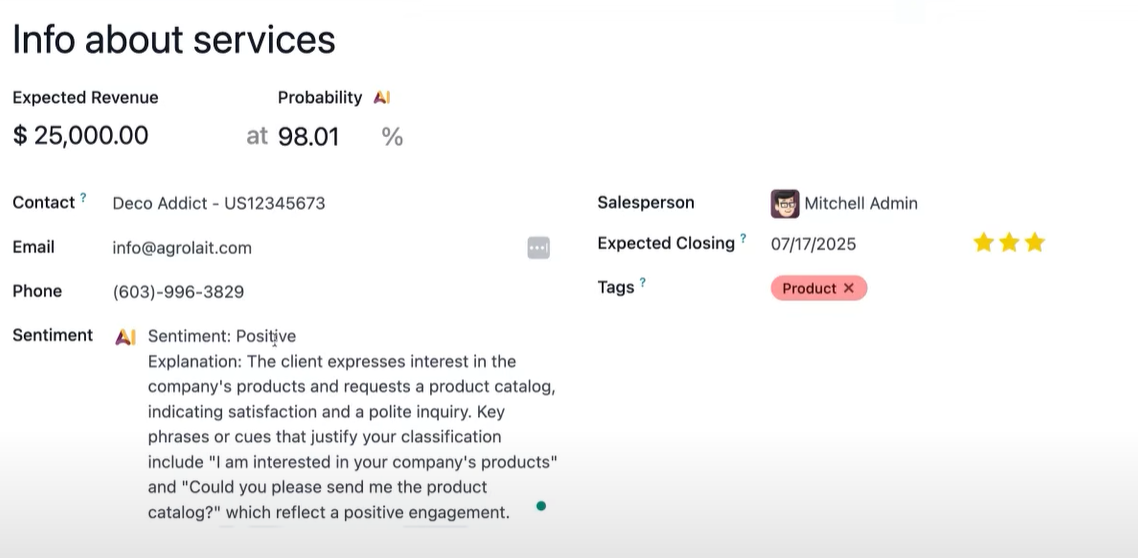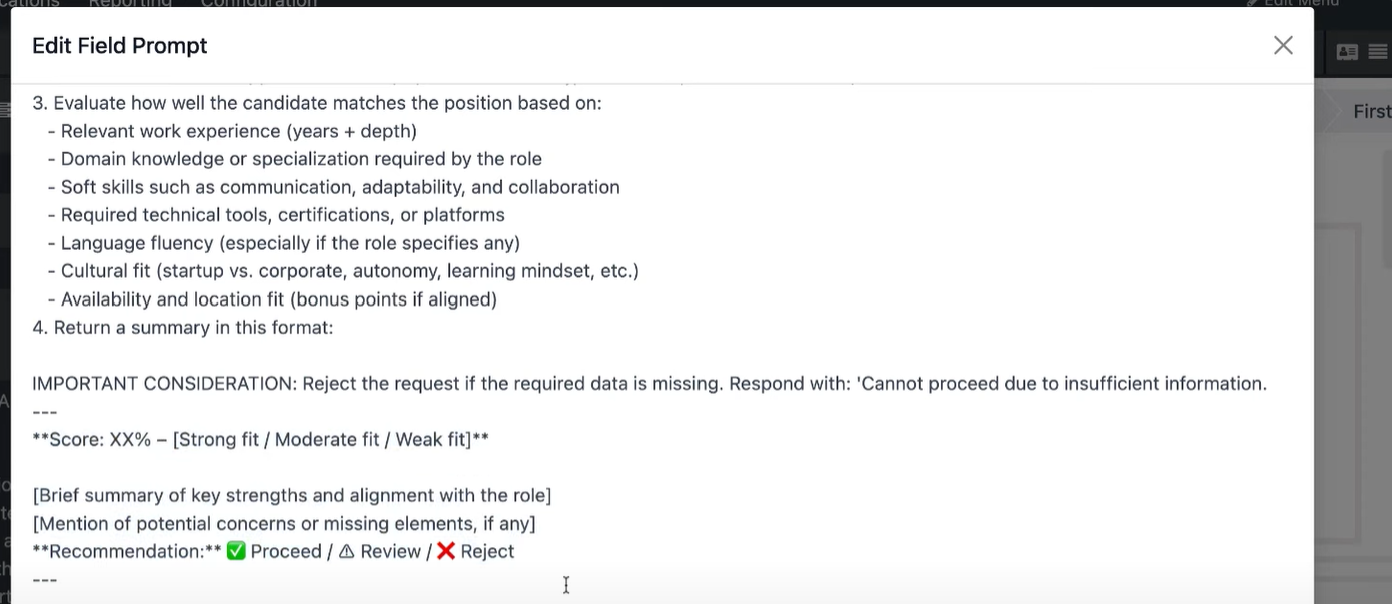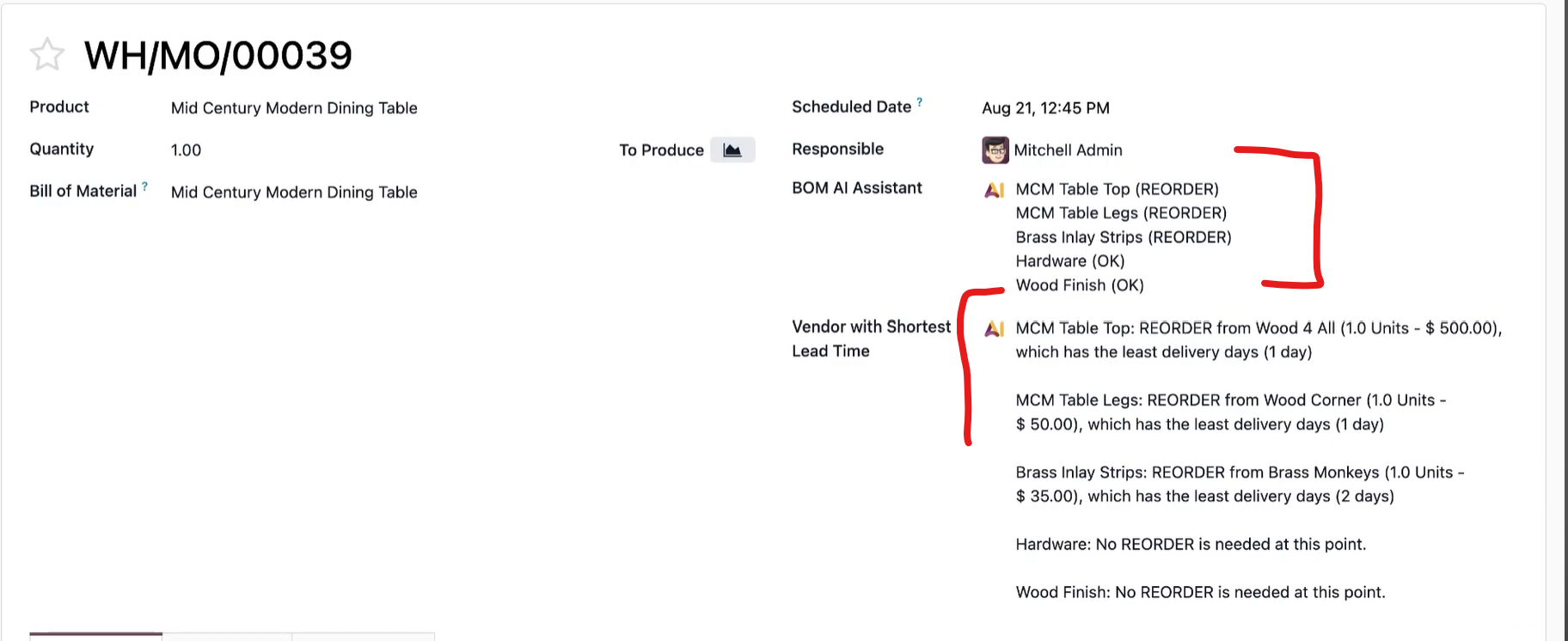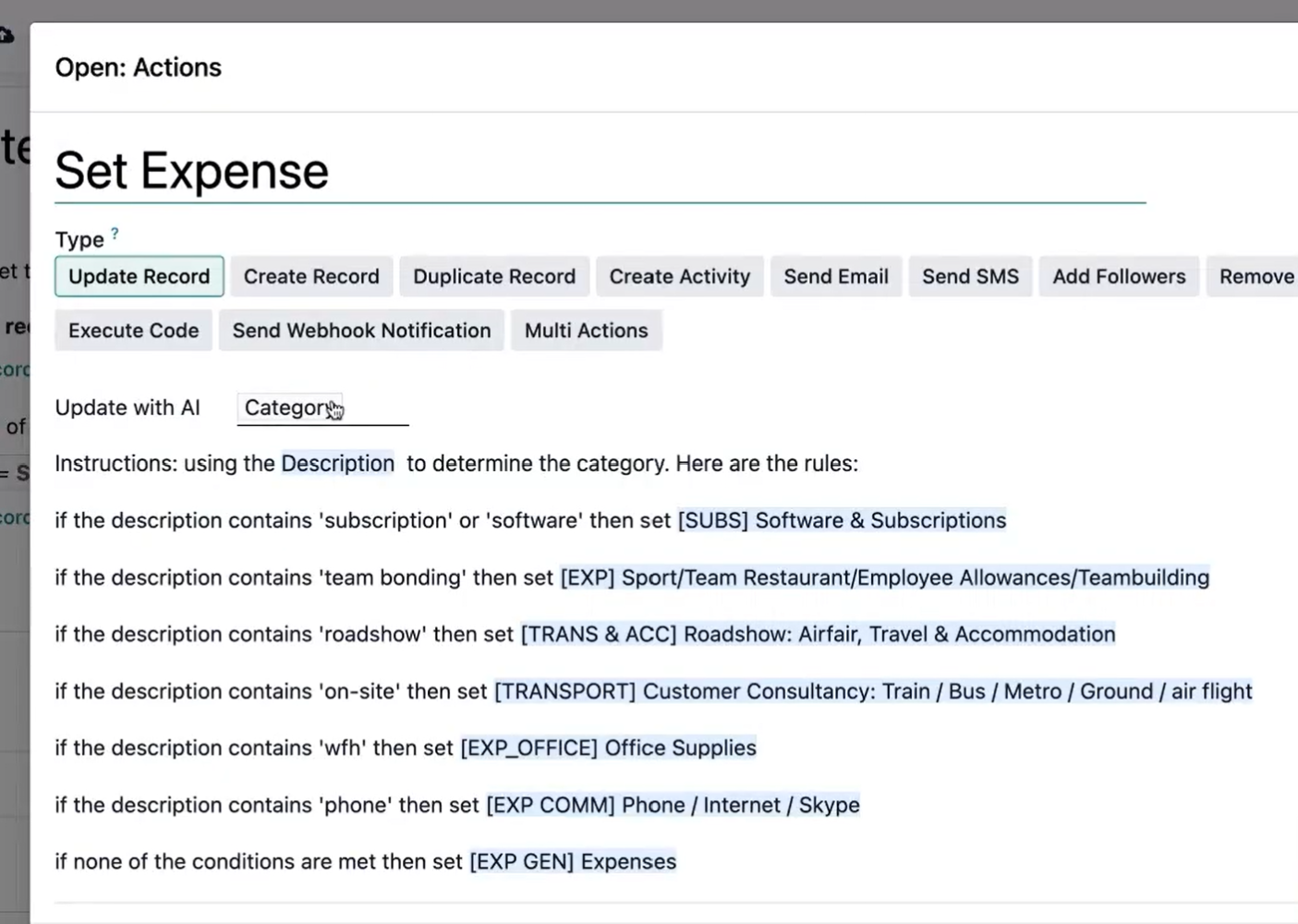When we think about artificial intelligence in business software, what often comes to mind is a simple chatbot added to an existing interface. It’s a convenient feature, sure, but one that merely scratches the surface of AI’s true potential.
Odoo takes a fundamentally different approach. Here, AI isn’t a gadget; it’s a driving force deeply embedded in the heart of business processes. Its role isn’t just to answer questions but to solve specific operational bottlenecks that are costly and time-consuming. Each of the features we’ll explore embodies this philosophy: using AI to automate complex tasks, analyze subtle data, and make companies smarter, faster, and more efficient—turning hours of manual work into informed, automated decisions.
1. CRM beyond the vibe check: AI analyzes your customers’ sentiment
For sales and support teams, sorting through incoming messages is a constant challenge that can be costly. How can you tell if a customer is simply curious, highly interested, or on the verge of frustration? This subjective analysis takes valuable time and often leads to missed opportunities or dissatisfied clients.

Odoo’s AI tackles this challenge head-on by automatically analyzing the sentiment of messages in support tickets and CRM opportunities. The system doesn’t just label the tone as positive or negative—it provides a summary explaining the reasoning, even quoting specific phrases like “the support team hasn’t been very responsive.” The impact is direct: by reducing the time to first contact, sales teams can increase conversion rates by up to 30%. Managers can instantly identify at-risk leads, reassign urgent cases, and coach their teams based on real data.
By automatically detecting tone and emotion behind each message, your team can cut time spent reviewing new leads by 70%.
2. Your virtual recruiter: AI pre-screens candidates for you
Manually reviewing résumés is one of the most repetitive and time-consuming tasks in recruitment. Each application must be read, evaluated, and compared to job requirements—a process that can take days and cost 6 to 12 hours of work per week per job posting.
Odoo’s AI acts as a true virtual recruiter by fully automating this step. When an application is submitted, the AI analyzes the résumé, evaluates skills and experience relative to the position, and then generates a summary and compatibility score. Based on this score, it can even automatically move candidates to “Qualified” or “Rejected.”

The results are impressive: beyond reducing screening time by 75%, this AI also improves the quality of shortlisted candidates by 35% and allows recruiters to preselect qualified profiles three times faster.
3. The instant logistics expert: AI chooses the best supplier and warehouse
Modern logistics is a puzzle of complex variables. Two of the most common and costly challenges are selecting the optimal supplier for a Bill of Materials (BoM) and choosing the most efficient warehouse for delivery.
- Supplier selection: Imagine needing to order dozens of components, each available from multiple suppliers with varying lead times. Odoo’s AI analyzes the entire BoM, instantly compares all supplier lead times, and recommends the fastest combination. This can boost efficiency by up to 25% and improve on-time production rates by 15–20%.
- Warehouse selection: When an order is placed, the AI automatically assigns the most suitable warehouse based on the customer’s delivery address. This instant decision can save around 12 hours per week in manual management and reduce late delivery penalties (chargebacks) by 30–50%, all while optimizing transport costs.
In short, AI automates complex logistical decisions that would otherwise require hours of manual work and expose the company to costly errors.

4. Automating tedious tasks: AI categorizes your expense reports
For accounting teams in large organizations, processing around 100 expense reports per payroll cycle is a repetitive and error-prone task. Each expense must be manually assigned to the correct account—a process that slows payroll processing and causes frustration.
Odoo uses AI to make this process seamless. The system reads each expense description (for example, “client dinner at road show” or “hotel for conference”), detects relevant keywords, and automatically assigns the correct accounting category and general ledger (GL) account.

Le résultat ? Un traitement de la paie accéléré, une réduction drastique des erreurs de saisie et la garantie que les employés sont remboursés rapidement et correctement.
5. The built-in coding assistant: AI even validates your custom scripts
This may be the most surprising feature, showing just how deeply AI is integrated into Odoo. “Server Actions” allow users to automate business processes through custom code scripts. However, even a small syntax or logic error can lead to major issues.
To prevent this, Odoo includes a “Rate my code” feature. Here, AI acts as a professional code reviewer, analyzing three crucial aspects: Will the code run successfully? Is it efficient? And most importantly, does it align with the user’s intended goal, inferred from the action name? This preventive validation step keeps bugs from reaching production—a priceless safeguard for any company customizing its workflows.
The AI is guided by a custom prompt that makes it act as a coding assistant for business users with varying levels of technical skill. It focuses on three things: execution, efficiency, and intent alignment.
Conclusion
As we’ve seen, AI in Odoo is far from a gimmick. It’s a practical suite of tools designed to tackle real, complex business challenges. From logistics to accounting, recruitment, and even code validation, AI operates behind the scenes to make every aspect of the business smoother and smarter. Curious to learn more? Our team will be happy to answer you at sales@idealisconsulting.com.


Odoo and AI: 5 features you shouldn’t miss